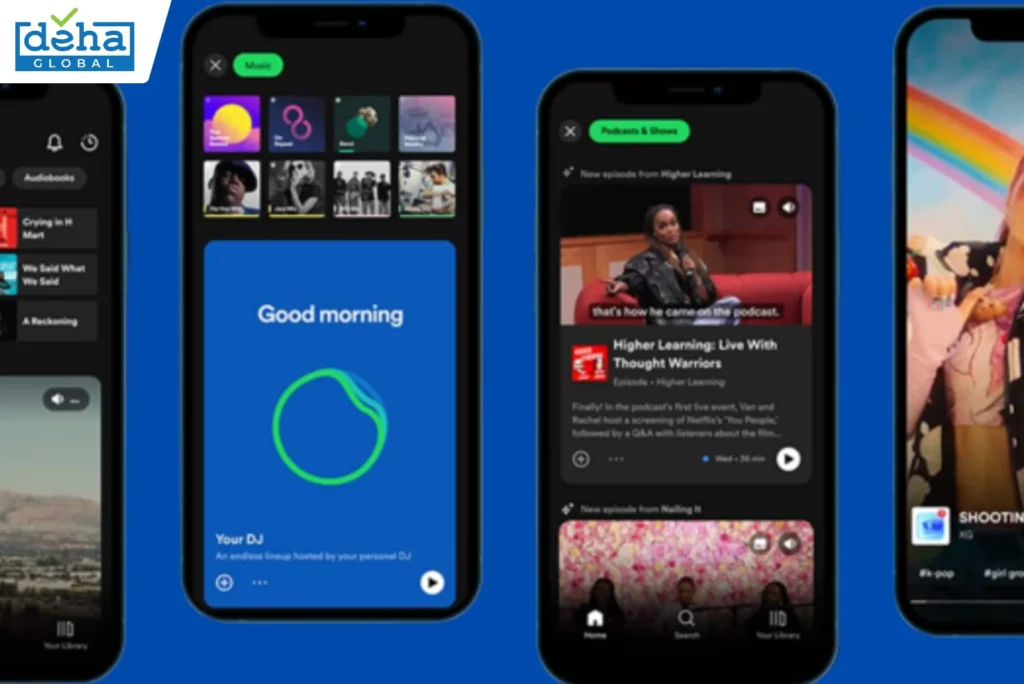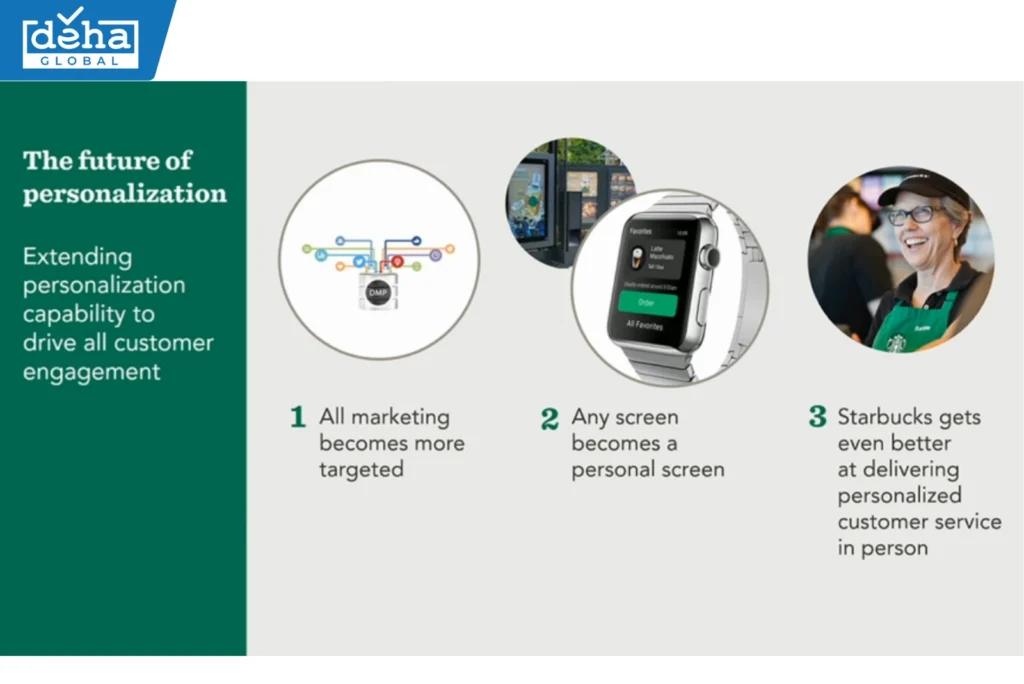Table of contents

Many businesses today struggle with leveraging AI effectively due to the lack of a coherent AI strategy. An effective AI strategy is crucial to fully capitalize on AI services, achieve sustainable growth, and stay competitive. This article will break down the topic of AI strategy by examining five successful real-world case studies. You’ll gain insights to understand and apply AI strategy effectively in your business operations.
In recent years, artificial intelligence (AI) has shifted from a futuristic concept to an integral part of everyday business operations. Yet, many businesses dive into AI services without a clear strategy, risking failure and unnecessary costs. To fully harness AI’s potential, developing a strong AI strategy is no longer optional—it’s essential.
Here are the key reasons why having a clear AI strategy is critical for your business today:
– Align AI Initiatives with Business Goals: Without a clear AI strategy, businesses often adopt random AI services that don’t directly support their main objectives. A robust AI strategy ensures that every AI initiative is carefully aligned with core business goals, maximizing ROI and business impact.
– Efficient Resource Allocation: Implementing AI services can be costly and resource-intensive. With a strategic approach, businesses can clearly identify priorities, allocate resources effectively, and avoid unnecessary investments in technologies that don’t fit their business model.
– Competitive Advantage and Innovation: Companies with well-developed AI strategies consistently outperform competitors by leveraging cutting-edge technologies effectively. A thoughtful AI strategy allows businesses to innovate faster, providing a distinct advantage in increasingly competitive markets.
– Enhanced Customer Experience: A strong AI strategy helps businesses implement targeted AI services to enhance the customer journey—from personalized recommendations to intelligent customer support. This increases customer satisfaction, retention, and ultimately, business profitability.
– Future-Proofing the Business: Technology evolves rapidly, and companies that lack foresight may quickly find themselves outdated. A strategic approach to AI ensures your business remains adaptable, resilient, and well-positioned to leverage new technological advancements, protecting long-term success.
In today’s fast-paced digital landscape, businesses are increasingly turning to artificial intelligence (AI) to gain a competitive edge. However, implementing AI isn’t just about adopting new technologies; it’s about crafting a well-thought-out AI strategy that aligns with business goals. Let’s delve into five real-world case studies where companies have successfully implemented AI strategies to drive innovation and growth.
Overview: Netflix, the global streaming giant, faced the challenge of helping users navigate its vast content library to find shows and movies they’ll love. To enhance user engagement and retention, Netflix turned to AI-driven personalization.
How They Applied AI Strategy:
Netflix employs AI to personalize user experiences, notably through its recommendation engine, which analyzes viewing habits to suggest content tailored to individual preferences. This system processes billions of data points daily, including watch history, search queries, and user ratings, to curate personalized homepages and thumbnails. Additionally, Netflix uses AI in content creation, leveraging viewer data to inform decisions on original programming.
The impact of these AI strategies is significant, with approximately 80% of content watched on Netflix stemming from its recommendation system. This personalization has led to increased user engagement and retention, reportedly saving the company over $1 billion annually in customer retention costs.
However, reliance on AI poses risks, such as reinforcing viewer biases and limiting content diversity. To mitigate this, Netflix continually refines its algorithms to introduce a balance between personalized recommendations and diverse content exposure, ensuring users discover a broad range of programming.

Overview: Amazon, a leader in e-commerce, sought to enhance its supply chain efficiency to meet growing customer demands and reduce operational costs.
How They Applied AI Strategy:
Amazon integrates AI across its operations, notably in its recommendation engine, which contributes to 35% of total sales by analyzing customer behavior to suggest products. AI also optimizes its supply chain, using predictive analytics for demand forecasting and dynamic route planning to enhance delivery efficiency.
These AI applications have led to reduced inventory costs, improved delivery times, and increased customer satisfaction. For instance, during peak shopping periods, Amazon’s AI systems can forecast demand for over 400 million products, ensuring timely restocking and delivery.
Nonetheless, challenges include managing the vast data required for accurate predictions and addressing concerns over automation’s impact on employment. Amazon addresses these by investing in employee upskilling programs and maintaining a balance between automation and human oversight in its operations.

Overview: Spotify, a leading music streaming service, aimed to improve user engagement by offering personalized music recommendations.
How They Applied AI Strategy:
Spotify leverages AI to enhance user experience through personalized playlists like Discover Weekly and Release Radar, which use collaborative filtering and natural language processing to analyze listening habits and preferences. The platform also introduced an AI-powered DJ that curates and narrates personalized music selections, further engaging users.
These AI-driven features have significantly increased user engagement, with Discover Weekly listeners spending twice as much time on the platform. Spotify’s AI also aids in personalized advertising, aligning ads with individual listening preferences to improve relevance and conversion rates.
However, the use of AI raises concerns about data privacy and the potential for creating echo chambers. Spotify addresses these by implementing strict data protection measures and continuously updating algorithms to introduce users to a diverse range of content, preventing over-personalization.

Overview: Zara, a global fashion retailer, sought to enhance its responsiveness to market trends and optimize inventory management.
How They Applied AI Strategy:
Zara utilizes AI to streamline its supply chain and inventory management, employing predictive analytics to forecast fashion trends and customer demand. This allows for rapid product turnover and ensures stores are stocked with items that align with current consumer preferences.
The implementation of AI has led to increased operational efficiency, reduced waste, and enhanced customer satisfaction by ensuring product availability aligns with demand. Zara’s ability to quickly adapt to fashion trends has solidified its position in the fast-fashion industry.
Challenges include maintaining data accuracy and integrating AI insights across various departments. Zara addresses these by investing in data quality initiatives and fostering cross-functional collaboration to ensure AI-driven decisions are effectively implemented.

Overview: Starbucks aimed to deepen customer engagement and optimize store operations through AI-driven personalization.
How They Applied AI Strategy:
Starbucks’ AI platform, Deep Brew, personalizes customer experiences by analyzing purchase history and preferences to offer tailored recommendations and promotions. AI also optimizes inventory management by predicting demand based on factors like weather and local events, ensuring product availability.
These strategies have improved operational efficiency, reduced waste, and enhanced customer satisfaction through personalized interactions and consistent product availability. For example, AI-driven inventory management has minimized overstocking and shortages, aligning supply with demand.
However, Starbucks faced challenges when over-relying on automation, leading to a decline in customer satisfaction due to reduced human interaction. Recognizing this, the company adjusted its strategy to balance technology with human touch, rehiring staff to enhance the in-store experience.
Overall, these case studies illustrate the transformative power of a well-executed AI strategy across various industries. By aligning AI initiatives with business objectives, companies can drive innovation, enhance customer experiences, and achieve operational excellence.

When I first explored AI implementation for my business, the sheer number of consultants offering their services left me overwhelmed. Choosing the right AI strategy consultant felt like navigating a maze without a clear exit. However, once I learned what to look for, the decision became much simpler. Here’s exactly how you can confidently choose an AI strategy consultant suited to your needs:
– Clearly Define Your Business Needs First: Before talking to any consultant, understand exactly what your business goals are and what you want AI to achieve. Knowing your objectives upfront makes it easier to find a consultant who specializes in precisely the AI services your business requires, whether it’s automation, customer experience enhancement, or predictive analytics.
– Look for Practical Experience Over Theory: Choose consultants who don’t just talk AI strategy but have proven success stories. Consultants with hands-on experience in your industry can navigate challenges more effectively and help you avoid costly mistakes. Real-world results matter far more than fancy presentations or theoretical knowledge.
– Prioritize Clear Communication and Transparency: From personal experience, the best consultants speak your language—not overly technical jargon. They clearly explain strategies, expected outcomes, and potential risks. Transparency ensures you’re never left guessing what your investment in AI strategy will deliver.
– Evaluate Their Ability to Scale Solutions: AI strategy isn’t a one-time fix; it’s an evolving journey. A great consultant should provide a roadmap that grows with your business. They must show a clear plan for scaling AI services to match your future growth, ensuring your investment remains effective in the long run.
– Ask About Post-implementation Support: The real test of a successful AI strategy happens after implementation. Ensure your consultant offers ongoing support, training, and optimization. Continuous support guarantees that your business keeps pace with AI advancements and maintains a competitive edge.
By keeping these points in mind, you’ll select an AI strategy consultant who not only fits your immediate needs but also becomes a valuable partner in your long-term AI journey.
In Conclusion
Developing and implementing a robust AI strategy is no longer optional but essential for modern businesses aiming for innovation and competitive advantage. The five case studies presented clearly illustrate how impactful a well-executed AI strategy can be. To effectively implement AI services, businesses must choose the right consultant and understand their specific needs thoroughly. This guide ensures you’re better equipped to leverage AI strategy effectively for long-term success.